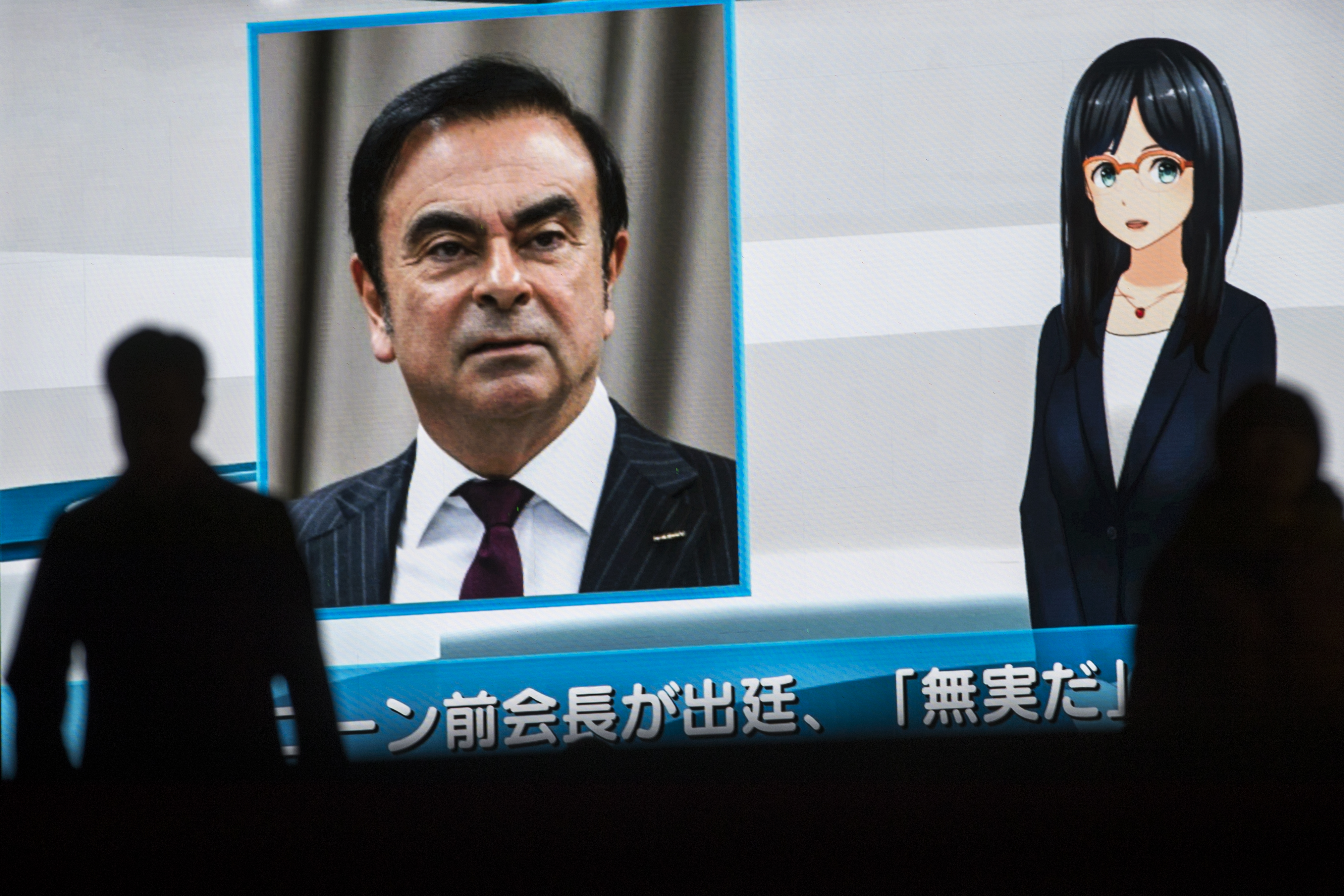Crimes and misdemeanours: Ghosn case puts spotlight on Japan justice
The arrest of such a high-profile suspect has put the spotlight on the Japanese legal system (Behrouz MEHRI)
Tokyo (AFP) – Former Nissan chief Carlos Ghosn has gone from travelling in private jets to occupying a one-man Tokyo jail cell, and his case has put the spotlight on Japan’s justice system.
His lengthy detention has prompted criticism in some quarters, but Japanese prosecutors have defended the country’s legal system.
– What conditions is he held in? –
Ghosn is being held at Tokyo’s Kosuge detention centre, and was initially in a small cell with traditional Japanese tatami floor mats to sleep on.
His lawyer revealed this week that he has now been moved to a larger room and provided a “Western-style bed”.
He has reportedly complained about the rice-based diet offered to detainees, with his family saying he has lost up to 20 kilogrammes (44 pounds).
Ghosn was noticeably slimmer during a court appearance Tuesday, with his hair greying at the roots, but seemed in good health.
He receives regular visits from diplomats for the three countries in which he holds citizenship: Brazil, France and Lebanon.
But his family have been prevented from visiting him, his lawyer said.
He meets regularly with his lawyers, with lead attorney Motonari Otsuru saying their discussions often last two hours at a time.
– Why is Ghosn still in detention? –
Ghosn has been held since his November 19 arrest, with prosecutors winning multiple extensions in a system that has drawn some criticism.
Under Japanese law, when a suspect is arrested, prosecutors can seek to hold them for a maximum of 22 days while they investigate allegations.
After an initial 48 hours, they can apply for a first 10-day extension, and then a further 10 days.
At the end of that window, they can indict the suspect, release them on bail, or rearrest them on new suspicions — effectively restarting the 22-day clock.
With each formal charge, they can also request a two-month period of pre-trial detention, which is itself renewable.
Ghosn has been indicted on a first charge carrying pre-trial detention, but has also been rearrested twice. The detention period for the third set of allegations against him expires on January 11.
But even his lawyer Otsuru acknowledged the auto tycoon has little chance of being released soon, describing it as “very difficult” to win bail for Ghosn before his case goes to trial.
And that, he said, could take at least six months.
– How are charges investigated? –
A key part of Japanese prosecutorial strategy involves extensive interrogation of suspects that experts say is intended to extract a confession.
Great weight is still put on confessions in Japan, while many parts of the world have reassessed how valuable the tool is.
They are a key weapon in the arsenal of prosecutors, who enjoy a 99.9-percent success rate at trial.
Critics sometimes describe the Japanese justice system as “hitojichi shiho”, or a “hostage-based justice system”.
“The ‘hostage’ is the suspect. The ‘ransom’ is their confession,” wrote Colin Jones, a professor at Doshisha Law School, in the Japan Times last year.
Amnesty International has accused Japan’s justice system of creating an environment of “aggressive interrogations” that “risk producing forced confessions and false convictions”.
Otsuru denied reports that his client has been pressured to sign a confession in Japanese, a language Ghosn does not speak.
But he also acknowledged that without signing a confession, his client was unlikely to be released before trial.
– How long will the process last? –
Otsuru estimated it would take at least six months for the case to come to court, but the process could drag on significantly longer.
Two years passed between the July 2015 arrest of Mark Karpeles, head of the failed cryptocurrency exchange MtGox, and his first appearance in a Tokyo court.
He spent around a year in detention.
A final decision in Ghosn’s case could take even longer, as appeals can be pursued all the way up to the Supreme Court.
Disclaimer: This story is published from a syndicated feed. Siliconeer does not assume any liability for the above story. Validity of the above story is for 7 Days from original date of publishing. Content copyright AFP.


